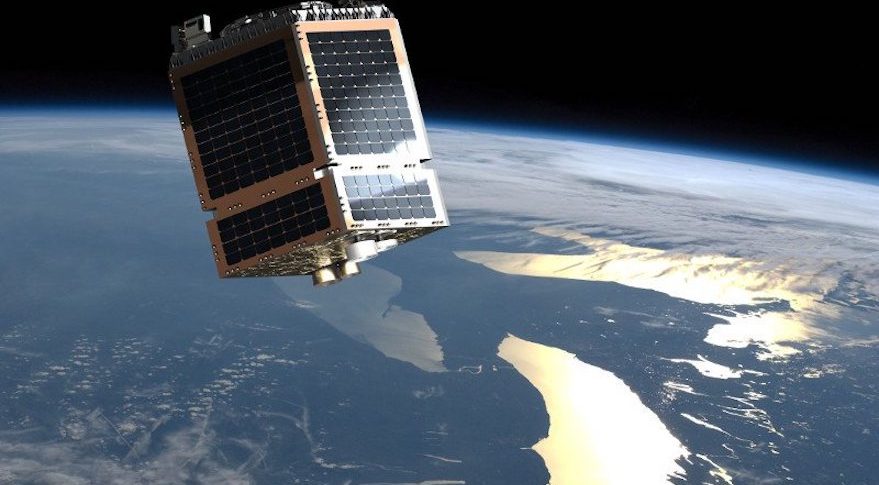
Telesat requests UK license to connect Lightspeed terminals (Image Credit: Space News)
TAMPA, Fla. — Telesat has applied for a U.K. license to connect broadband terminals with Lightspeed satellites it plans to start deploying in 2025 to low Earth orbit.
The Canadian operator’s application says the first of 198 Lightspeed satellites will be launched in the third quarter of 2025, British telecoms regulator Ofcom said June 24.
This is a narrower launch window than Telesat has previously outlined since supply chain issues forced it to downsize plans for the constellation by a third earlier this year.
Initial services in the United Kingdom are slated for 2026, about a year later than Telesat had planned before it was hit by the pandemic-related supply shortages.
Ofcom said it is due to announce a decision on Telesat’s request to connect user terminals, via a non-geostationary satellite Earth station network license, Sept. 12 following a public comment period.
LEO broadband megaconstellations Starlink and OneWeb already have licenses that give them permission to connect satellites to user terminals in the U.K.
Starlink and OneWeb use Ku-band spectrum to connect to users and Ka-band frequencies for gateway Earth Stations, which link their constellations to the internet or a private network and require a separate U.K. license to operate.
Telesat’s planned terminals and gateways operate in Ka-band, and Ofcom said the company has not yet applied for permission to operate Earth stations in the United Kingdom.
SpaceX’s Starlink recently applied for permission to add six more gateways in England to improve services in the region, which is also subject to an Ofcom consultation.
Starlink said it needs the extra ground stations to meet user demand as it rapidly expands the constellation toward global coverage.
While OneWeb’s satellite launches were disrupted in March following Russia’s invasion of Ukraine, an executive for the British startup said June 23 that deployments are set to resume in the fourth quarter of 2022.
“We’re going to be in service with global coverage, 24/7, by the end of next year,” said Maurizio Vanotti, OneWeb vice president of space infrastructure development and partnerships.
Ofcom says Telesat has yet to reach a spectrum coordination agreement of the kind Starlink and OneWeb agreed on earlier this month.
In a document Ofcom published June 24 to invite comments on Telesat’s license application, the regulator said Telesat has not reached coordination agreements with other licensed non-geostationary operators in U.K.
However, Ofcom said Telesat told the regulator that its Lightspeed satellites can avoid interference by dynamically assigning capacity where and as required.
This includes “through the selection of the satellite chosen to deliver the service, of the size and steering of satellite spot beams, and of the amount of spectrum and power allocated to them.”
Ofcom said its preliminary view is “Telesat Lightspeed should be able to coexist with existing NGSO licence holders with the approach described.
“However, we encourage all parties to continue coordinating in good faith between now and the launch of the Lightspeed constellation.”
Ofcom added it “wants to enable as many NGSO systems as possible, to provide services and increase choice for people and businesses in the UK.”
Telesat has so far secured about $3.3 billion of Lightspeed’s anticipated $5 billion cost.
The company needs to secure the rest of the funds before Europe’s Thales Alenia Space can move forward with plans to build the satellites.
Telesat announced May 8 that it has selected South Korean antenna maker Intellian to design and supply dual-parabolic reference user terminals for the LEO constellation.
Intellian is also providing antennas for OneWeb and SES’ medium-Earth orbit O3b mPOWER broadband constellation.








